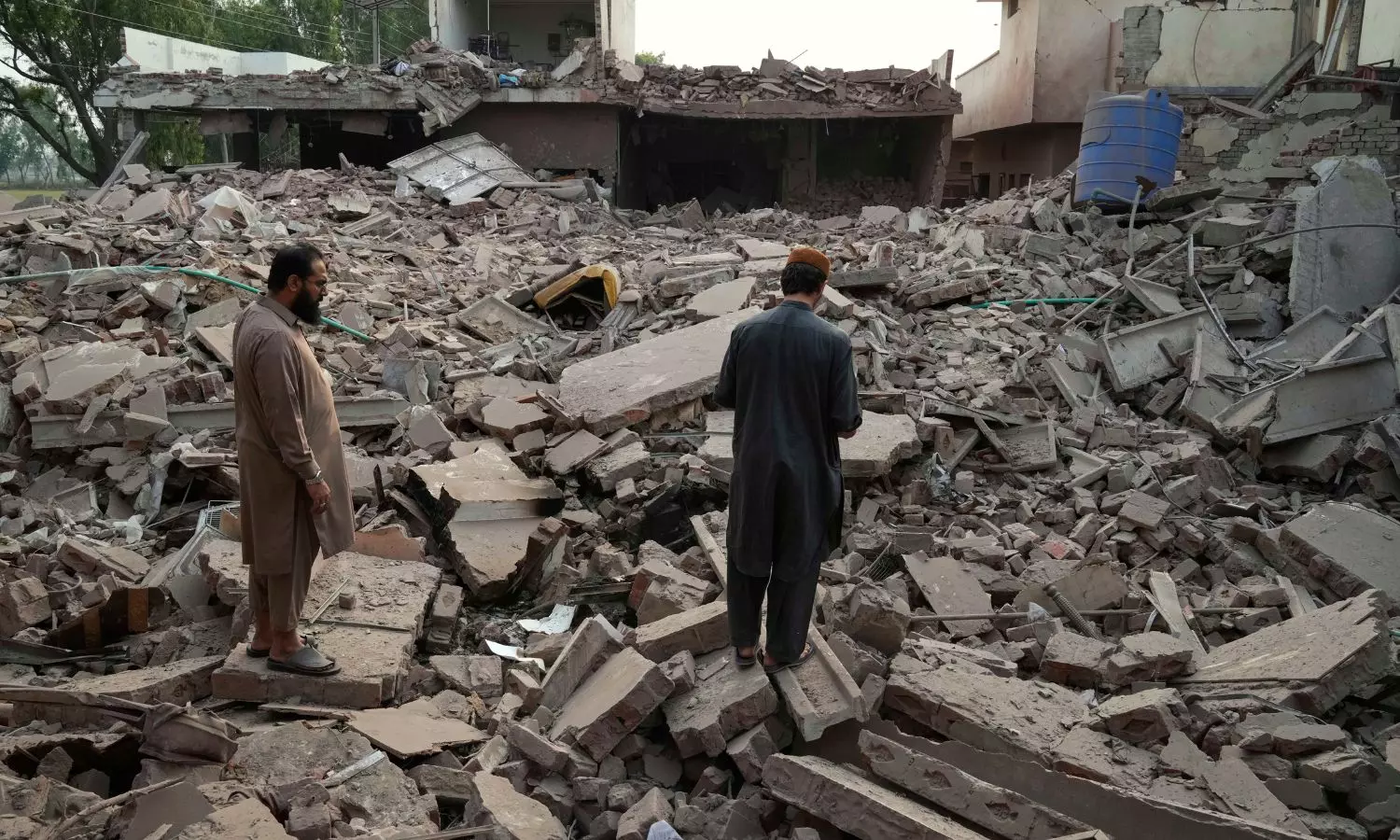Vijayawada: Suspected highly virulent Ranikhet disease is said to have caused the death of nearly two lakh chickens in Eluru, Guntur, Prakasam and the twin Godavari districts since last December.
A village called Badampur in Unguturu mandal of Eluru district has borne the brunt of the disease, as nearly 1.60 lakh of three lakh chickens in poultry farms of the village have perished. Thousands of birds have died each day from mid-January onwards.
One of the affected poultry farmers, Manikanta, rushed to Eluru district collector K. Vetri Selvi to inform her about the development and seek support. The district administration swung into action. A committee led by animal husbandry officials inspected the affected poultry farm, collected samples of infected chickens, and sent them to the Central Lab in Bhopal for analysis. Its report is awaited.
In the interim, the district administration has alerted forest officials, as thousands of migratory birds have arrived in Eluru district. Forest department is initiating measures to ensure that the migratory birds do not consume the litter of diseased chicken and become infected. The district administration is planning to declare the affected poultry farms and egg collection points as red zones to ensure that the disease does not spread to other areas.
Eluru district animal husbandry joint director T. Govinda Raju said, “We are keeping a close tab on the suspected Ranikhet disease causing a large number of chickens to perish. We are taking all requisite measures to curb the spread of the disease. Following this, we are witnessing a gradual decline in the number of birds dying in the last two days.”
In East Godavari, poultry farms affected due to the disease are in the villages of Peravali and Undrajavaram mandals in Kovvur revenue division where, in the last one week, nearly 20,000–30,000 chickens have perished.
East Godavari animal husbandry deputy director Srinivasa Rao said, “We are initiating biosecurity measures to avoid the spread of the disease further. We have instructed the poultry farmers to bury the dead chicken in deep pits along with lime.”
Animal husbandry authorities say the virus will not survive at 35 degrees Celsius of weather. They ruled out cooked chicken and eggs causing harm to people consuming them.
Significantly, deaths of a large number of chickens has not affected the cost of their meat and eggs in a big way. This is because with the rise in temperature, many people avoid eating eggs and meat, preferring vegetables.
Poultry farmers say those among them who vaccinate their chicken periodically have been relatively safe from the virus.







